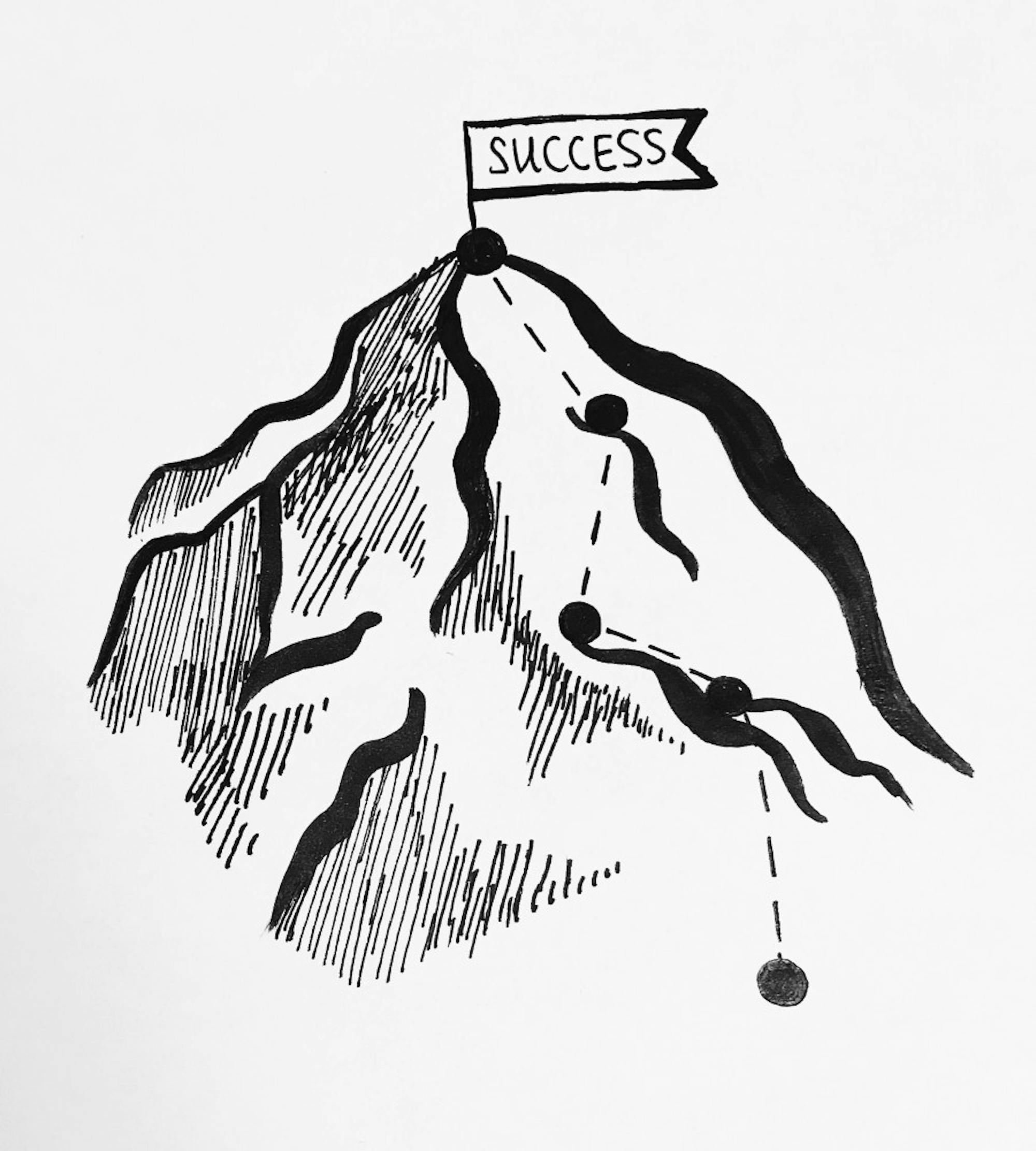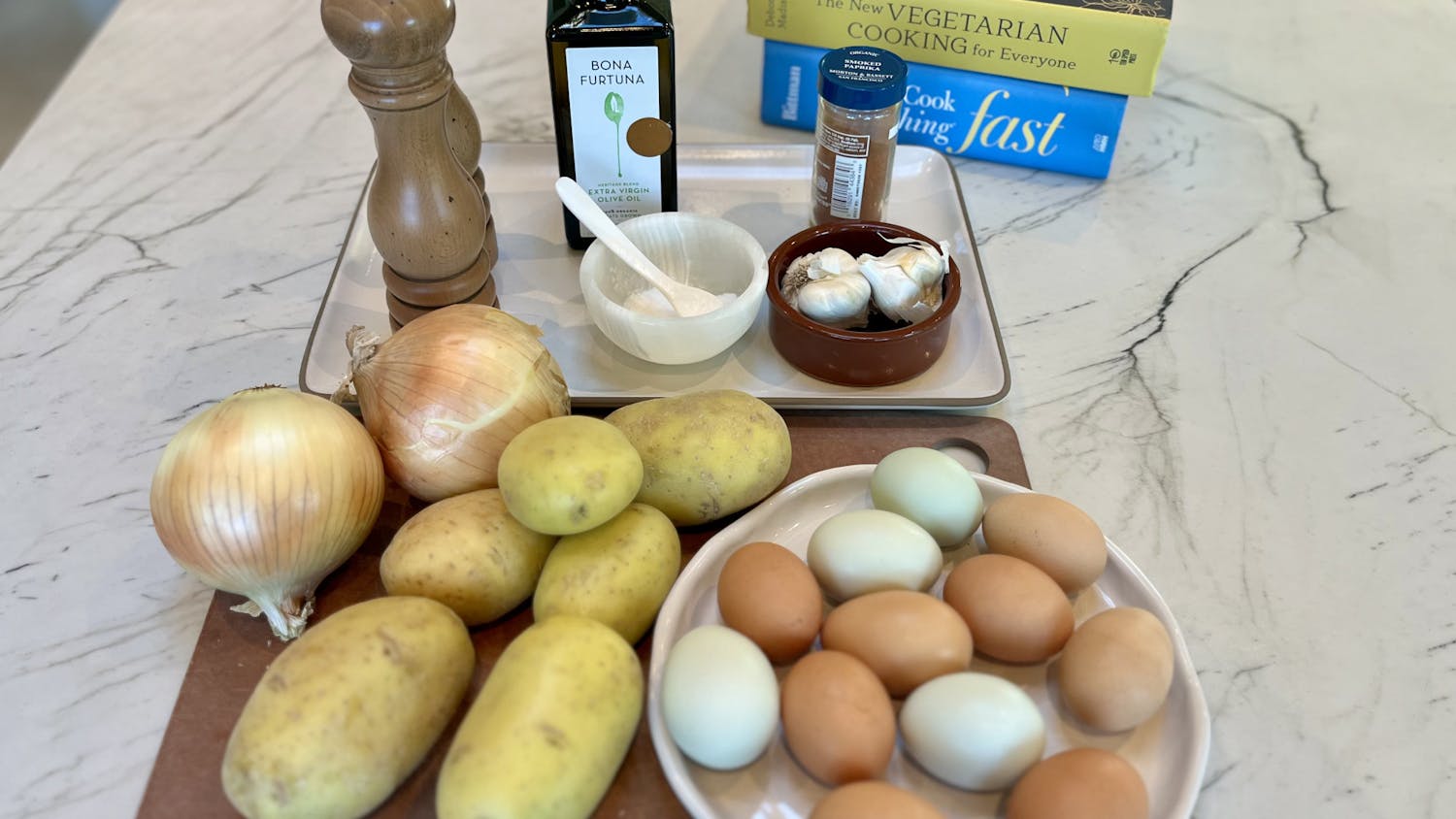Going to college is scary. Being in college is scary. I combat this fear with planning. On the drive from Alexandria, VA to Hanover, I opened the Notes app on my phone and made a list of goals that would allow me to become the version of myself that would thrive at Dartmouth. I’ve stuck to some of them. Some didn’t work out because I didn’t understand then what it was really like being here. Planning allows me to feel like I have a handle on the future, but I’ve accepted that I have to revise my expectations when life happens.
Samantha Locke ’22 told me she worked out her entire D-Plan during orientation week, complete with possible course listings, major requirements, a Foreign Study Program and even an exchange term at another university.
“It changed a lot over time,” she said. “I was thinking of doing astronomy and English with a concentration in creative writing, [but] now I’m thinking physics and film.”
Locke doesn’t think of herself as a serial planner; she just wants to make the most of her time.
“There’s so much I want to do,” she said. “I don’t have the time to figure it out as I go. I want to plan it out and be super focused.”
Her dream is to be a prolific writer. Someday, Locke hopes to be the lead writer on her own show. After that, she’ll write novels, poetry and children’s books. So why is she majoring in physics?
“I just like science,” Locke shrugged. “I want to do it because I can and I’m here.”
Like Locke, Benjamin Brody ’22 isn’t on the path he imagined — but in the opposite way. He thought he would switch majors — but didn’t.
“I applied as a classics major because I liked classics in high school,” he said. “But I figured that in college, I’d decide it wasn’t practical and end up doing economics and government and corporate things in the future.”
Brody’s love of classics has been reaffirmed, and he hopes to teach it in the future — but that isn’t all he wants to do.
“I think I’m gonna be the kind of person who bounces around in different fields and jobs,” he said. “That’s part of the great thing about the liberal arts education.”
In high school, Brody felt like he was too entrenched in his routine: schoolwork and hockey. Coming into college, he wanted to bring this bounce-around attitude into his extracurricular life as well.
“I don’t like getting caught too much in one community, one group, one routine,” Brody said.
But he’s surprised himself by finding spaces he wants to be in more permanently.
“I’ve found some communities on campus where I feel really comfortable,” Brody said. “In spite of myself, I think it’s best for me to spend time in those communities because I do enjoy them and there’s no reason not to.”
The communities Brody has become a part of are not the ones he expected. He thought he was tired of hockey after high school, but after being roped into going to tryouts, it’s become one of his favorite activities. He thought he’d be in pre-professional clubs, but has instead built a sense of place in the Dartmouth Outing Club.
“I have a different sense of my values,” he said. “What I’m getting out of college isn’t necessarily just the education, but the holistic experience that will help me grow.”
Fulya Dal ’22 thought she would hate her Dartmouth experience. She is an international student from Turkey, and she said her high school was incredibly competitive. Even though Dartmouth is in the Ivy League, she noted that it is not viewed as highly internationally.
“I had never even heard of Dartmouth,” Dal said. “That’s maybe something the school has to work on, because internationally, its reputation is basically none.”
It wasn’t just Dartmouth’s lack of name recognition that gave Dal doubt.
“When you search Dartmouth, the only thing that comes up is Greek life and hazing, so I was really intimidated by everything,” she said. “My image of college was that I would just study in my room [the whole time].”
Even after she arrived, Dal thought this wasn’t the place for her.
“My plan, even during [First-Year Trips], was to apply for a transfer,” she said. “I talked to my undergraduate dean before classes started.”
But the day classes started, everything changed. Dal said she started to love Dartmouth and all of the activities she was getting involved in.
“I had a schedule — I had a life here,” Dal said. “I tried out a lot of clubs. I had no idea what I wanted to do, so I was [just] trying a lot of things.”
As the newly accepted ’23s prepare to arrive on campus, current students offer advice for their expectations and plans. Dal specifically addressed international students who might have a skewed perception of Dartmouth.
“Don’t be so biased,” she said. “If you haven’t visited the campus, and you don’t know a graduate, it’s really hard to have an opinion about the College.”
Locke stressed the importance of not always being a go-getter.
“If you have the same sort of intensity that I do in terms of feeling like you need to do things, make sure to rest,” she said.
Brody was told by everyone to “try things,” but there’s more to it than that.
“Don’t just go to the first club meeting — try it for a month or two,” he said. “It’s definitely worth it and leaves you with better relationships.”
These students differed in how and how much they planned, but what they had in common was that their plans changed. My goals help me stay hopeful and keep looking forward, but they wouldn’t be helpful if they didn’t change to match my constantly shifting life.
Dal sums it up with a shrug: “Don’t plan too much. [Plans] change anyway.”




